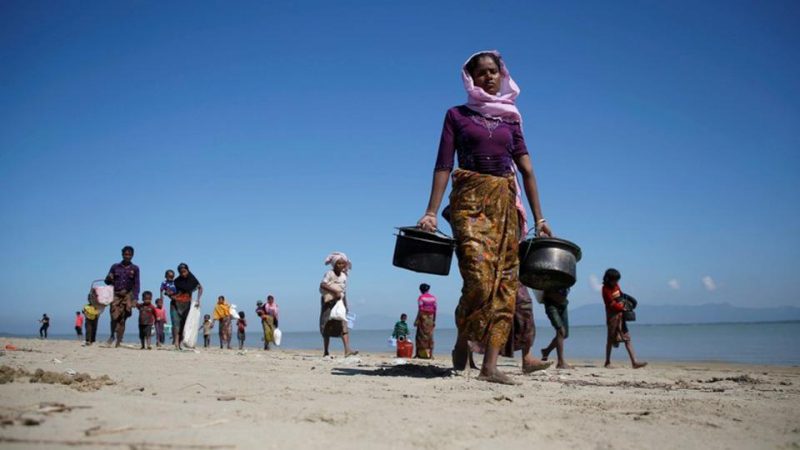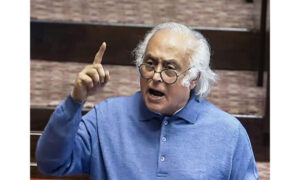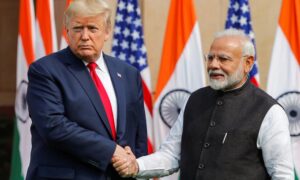
File Picture Courtesy : Hindustan Times
The report that on 23 November last Bangladesh and Myanmar had signed a deal at Naypyidaw, the capital of Myanmar for early repatriation of an estimated 620000 Rohingya Muslim refugees to Myanmar has been well received by the world community. The minority Rohingyas were forced to leave Rakhine in the wake of the Myanmarese Army crackdown after the Rohingya insurgents attacked 30 military and police posts in North Rakhine in August 25 last and the state backed eviction of the Rohingyas in the present form has been going on unabated since 2012.
Though the details of the deal termed ” Arrangement” in the official communique have not been spelt out, the repatriation process is expected to begin in two months; and to facilitate the process registration forms have been given to Bangladesh by Myanmarese govt which the Rohingya Refugees must fill in with their personal details. And the two countries have agreed to form a joint working group to start the repatriation process.
Significantly, Myanmar didn’t agree to the proposal of Bangladesh to involve UN agencies to the process of verification of the refugees nor did they agree to fix a time line for completion of the Repatriation process. This is understandable given the fact that a large number of Rohingya villages were wiped out and it would require some time to make the villages fit for the return of the refugees to rebuild their lives after completion of verification.
Nevertheless the “Arrangement”is a good news for South Asia because the Rohingya problem is old and took a turn for the worse after the Army coup in 1962 and the first big movement of the Rohingya Refugees to Bangladesh and in the south East Asian neighborhood of Mayanmar took place in 1978 ;and from 1992 it has been a recurring problem as the 1982 citizenship law turned the Rohingyas “state less . Sadly, the Rohingyas became a kind of ” rejected” people in Myanmar and their position would be no better unless the Government of Myanmar agreed to amend the Citizenship Act to make the Rohingyas eligible for citizenship.
In 1993 some Rohingya refugees in Bangladesh were given White cards by the Government of Myanmar but it was not helpful for them to secure rights at all because the extant law required the Rohingya to prove that they were residing in Rakhine from before 1823 when the Anglo Burmese war began leading to annexation of Rakhine and lower Myanmar to the British India in 1826 which became parts of Bengal Presidency.
Even then the deal is historic for several strong reasons. First it signals success of international pressure, the condemnation of the UN High Commissioner of Refugees and that the US Secretary of State called the recent Myanmarese Army crackdown an ” act of ethnic cleansing” and initiated some sanctions against Myanmar Army officers had the desired impacts. The US measure must have shaken the Myanmar Army and enabled the state Counselor Daw Aung San suu Kyi to assert the voice of reason and her authority.
The second and by far the most significant aspect of the deal is the Chinese role as it is the first time in history when the Chinese government mediated in a matter involving two parties — Bangladesh and Myanmar which were parts of India under the British.( Burma as Myanmar was known then was a province of India and separated in 1937 under the Government of India Act 1935 ). The Chinese Foreign Minister Wang Yi’s visits to Dhaka and Naypyidaw in the last week and the influence China holds in both the countries due to Chinese Investments and defense hardware supplies were responsible for bringing the parties to the negotiating table. It is indeed a diplomatic success of China as it persuaded the Myanmarese Army to see reason and to bring home the point that the ” rules based Global order”– despite its infirmities, will not accept wholesale expulsion of an ethnic group and denial of human rights as settled fact even when a section of them had taken to the path of insurgency.
The Agreement therefore signals a radical change in the attitude of Myanmar to the Rohingyas and a tacit acceptance of the Rohingya claim to Citizenship that the Myanmarese state denied by not including the Rohingya Muslims in the list of 135 ” recognized” ethnic groups of Myanmar. Though much will depend on how sincerely the agreement is implemented ,it is indeed a welcome step though from the Indian perspective it might be seen as the beginning of the ” enter the dragon” phenomena in south Asia and to feel concerned about it.
Third, the Rohingya problem shows the impossibility of displacing large rural community by state action and state sponsored violence in today’s interconnected world as easy availability of commercial satellites now enable human rights groups and Global media to report violence in any part on even minute to minute basis. This ” transparency of the new information age” therefore reduces the space for state to carry out ” pogroms” against any large ethnic group even in the third world.
The fourth implication is also far reaching as the Agreement has the potential to bridge a gap in the international law of citizenship – presently a grey area as the states are totally free to enact laws laying down the conditions of Citizenship there being no International convention on agreed eligibility criteria for acquisition and loss of citizenship. We must note that though the right to a nationality is a part of the human rights under the UN Declaration of human rights, there is not even a customary international law of citizenship at present to protect the legitimate claims of the minorities to citizenship and from discrimination, denial of citizenship state sponsored violence and forced displacement.
Hopefully the verification and repatriation process of the displaced Rohingyas will create useful practices, systems and procedures and eventually sensible, human rights based laws of citizenship in Myanmar which will be regarded as ” precedent” by other nations. Thus a customary international law might as well emerge from the ashes of the burnt out Rohingya villages of North Rakhine.
This will be the positive side of the Rohingya problem and may ensure protection of minority rights elsewhere in South Asia and put constraints on the authoritarian regimes. At the same time , the defeat of the seperatist Rohingya Muslim demand is a clear signal that ” Political Islam” or Neo Wahabi aspirations are doomed to fail in South Asia and elsewhere.
If the Rohingya Muslims have noted this reality in the squalor of the refugee camps in Cox’Bazar in Bangladesh and are willing to give up their separatist demands then only they will be able to create a new base for Peace and Reconciliation in Rakhine.The global community. expects a positive response from them and they must live up to the expectations.
( The writer is a retired IAS officer of the Assam – Meghalaya cadre and has served as Scientific Consultant in the office of the Principal Scientific Advisor to the Government of India)


















